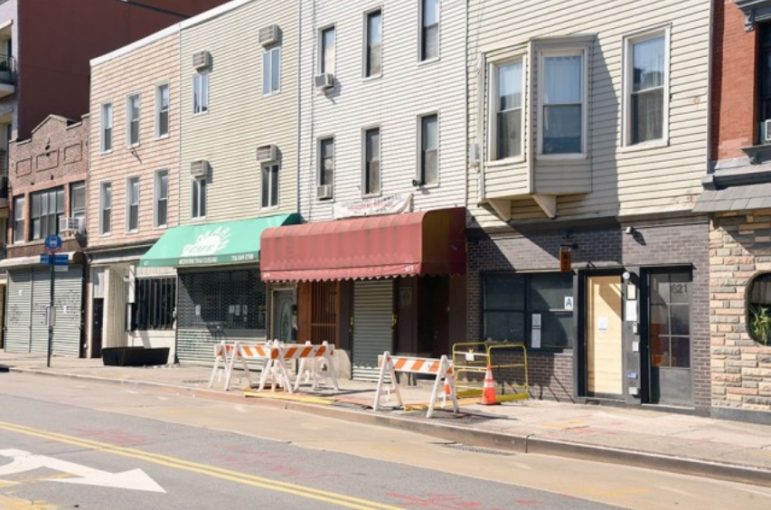
Marcin Żurawicz for Biały Orzel
Manhattan Avenue in Greenpoint.Read the original story in Polish at Biały Orzeł
Translated and condensed by Aleksandra Slabisz
When the world set out on a fight with COVID-19, schools, offices, stores and restaurants closed, putting the economy on the brink of recession. Owners of Polish delis and stores in New York have suffered a great deal due to closures. Here’s what some of them shared with Polish newspaper Biały Orzeł:
“I am not going to hide that business has slowed down. At the beginning people were buying in panic, then the number of customers visiting our store has dwindled by 60 percent. This is a huge decline,” says Andrzej Bogun, owner of Cracovia Deli in Boro Park. He hopes the economy will be restarted soon.
“The city has practically turned into a ghost town. It is hard to say how long we will be able to function like that. I don’t even want to think now about closing down and firing workers. They are struggling too,” says Bogun. Getting delivery from their wholesalers has become more difficult too.
“The suppliers from New Jersey are reluctant to come to Brooklyn. People are simply scared. On a positive side, we were able to stock up before Easter,” owner of Cracovia Deli says, adding he has a mission to stay open as he feels his employees and customers need him.
“The situation is far from good. In a sense we have been double hit,” says Radek Kucharski, owner of Pierozek, a pierogi joint in Greenpoint that opened a couple of months before COVID-19 struck the city. “We hadn’t yet had a chance to build a wide network of customers and the pandemic forced our revenue to dwindle by 80 percent.”
People are scared to order food out because of virus fears, he adds.
“We haven’t fired anyone yet; we have, however, limited the hours. We do realize that our employees have found themselves in a tough economic situation,” Kucharski says. “We realize though that we won’t be able to operate like that in a long run. If nothing changes we will have close down until we will be able to return to operation at a full swing.”
He doesn’t believe closures would take months. “The economy would not withstand it. We are nevertheless dealing with an unprecedented situation. We are taking it one week at a time,” Kucharski says.
“The situation is tragic: within a week our revenue has shrank by 75 percent. We had to close one of our locations and are operating out of the Greenpoint store only. It is a fight for survival,” says Magdalena Lechowicz, co-owner of Greenpoint’s bakery Charlotte Patisserie, one of only two businesses on the block that were still open recently.
“Practically every day we are negotiating with suppliers trying to earn more time to pay our bills. We are also doing all we can not to let go of our employees and send them for unemployment benefits,” she says. “In a sector like ours, businesses have a financial margin of up to two weeks, so we won’t be able to operate like that forever. If the lockdown takes longer, it may turn out that it may pay off to close down the business.”
Her bakery has been doing only take out and delivery since the closures started. “Customers don’t even want to see the delivery person. We leave the delivery at the door and text the customer,” Lechowicz adds.
“It is a difficult time. We are open, but with limited hours, and with 30 percent fewer customers. People have basically fled the city to hide away from the virus,” says Paul Janeczko, owner of the liquor store Eight & Driggs in Williamsburg. He says he is aware the situation won’t go back to normal for a long time. “I am afraid the virus will keep coming back.”








